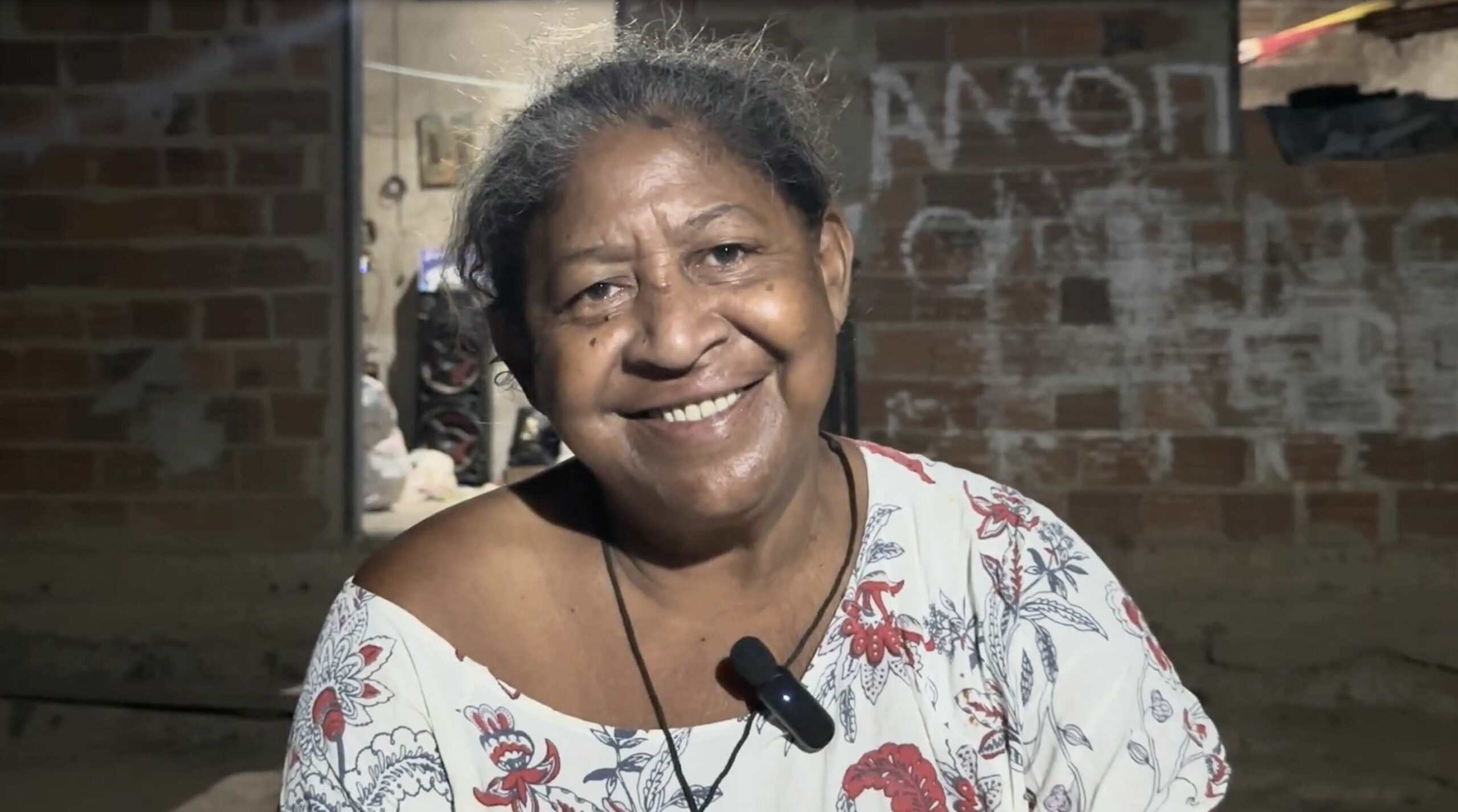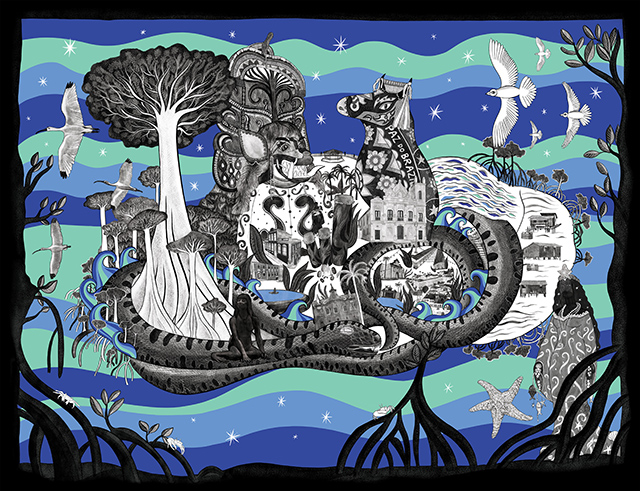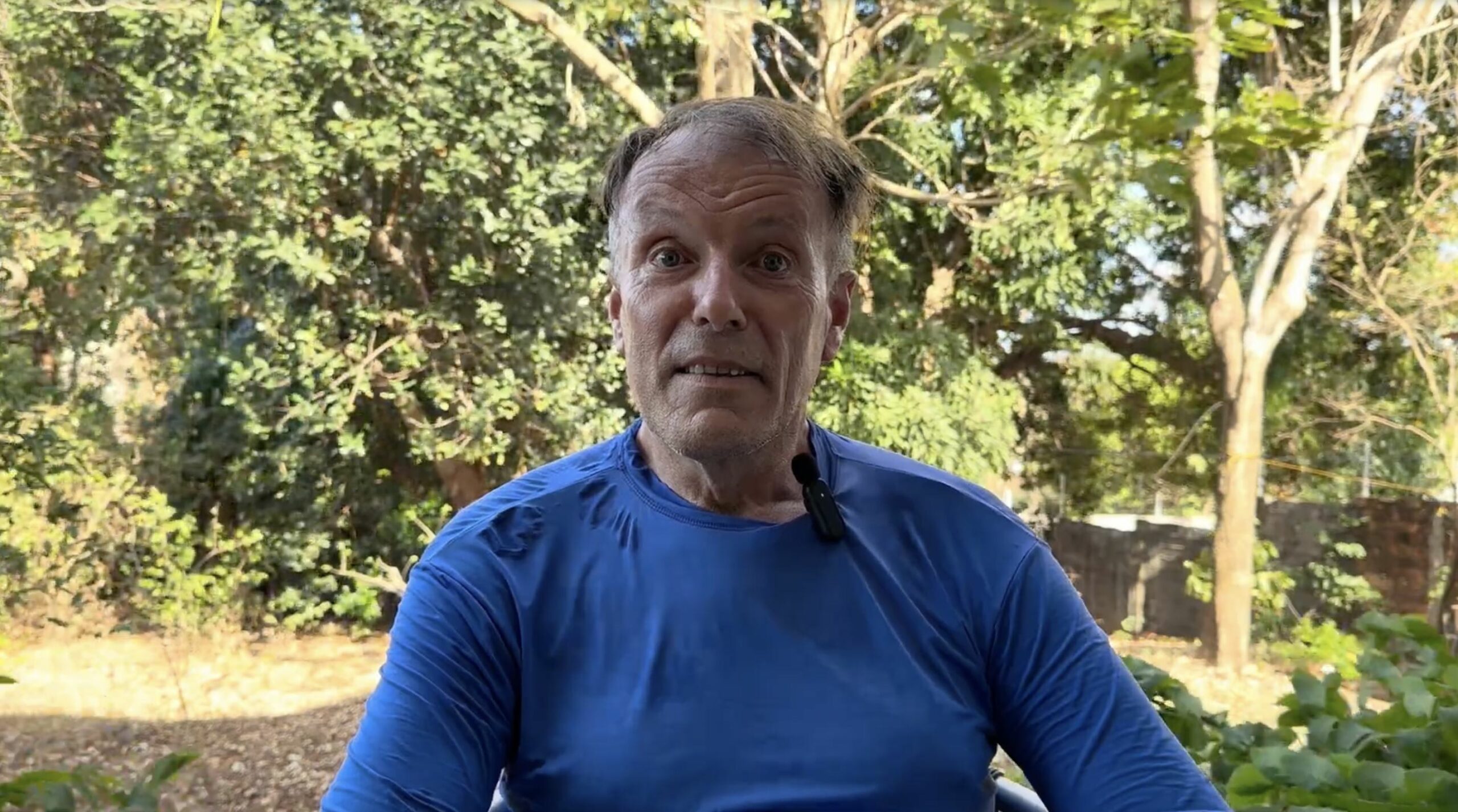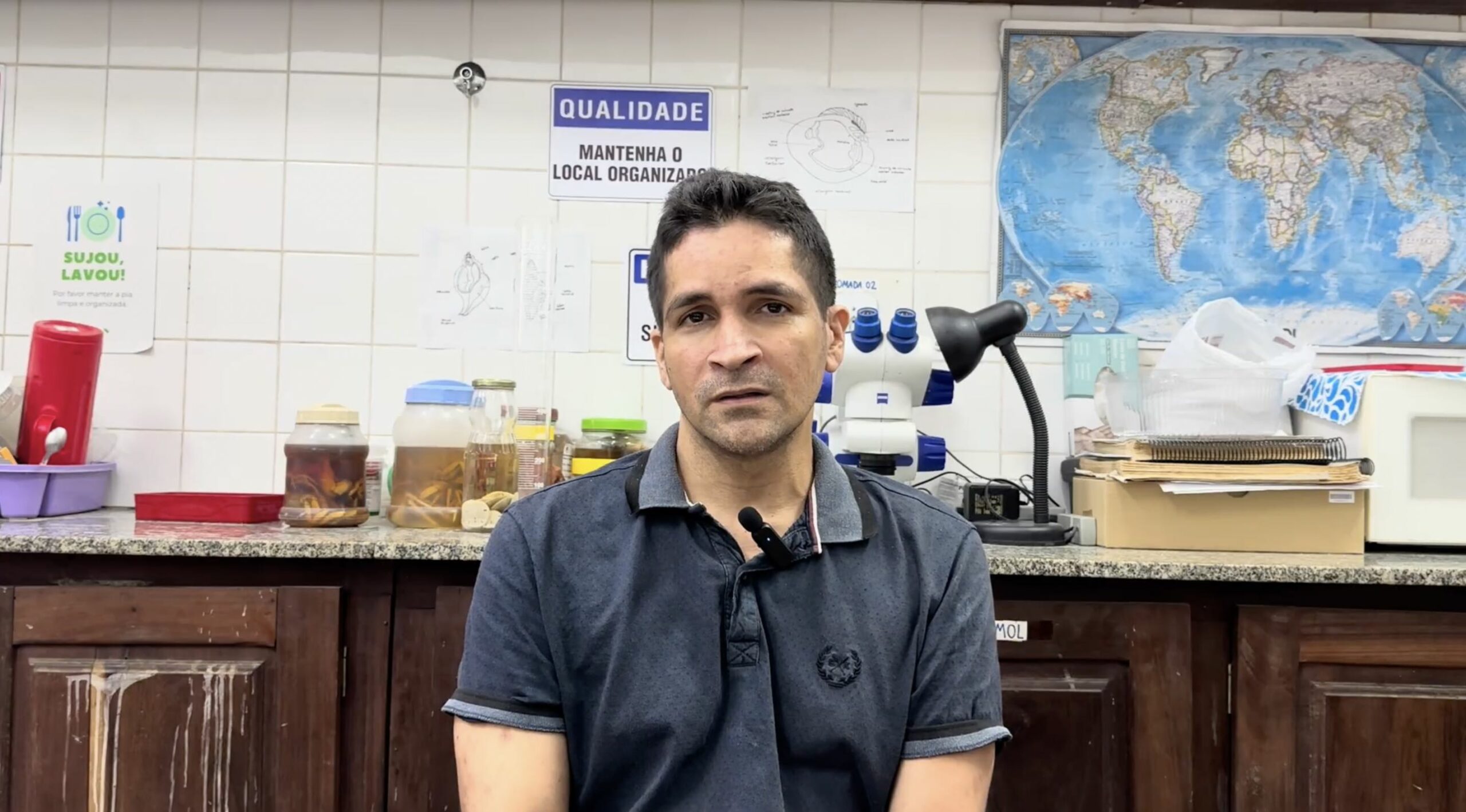
Antônia is a fisherwoman and mother of five children. She has lived her entire life in tune with the river. Born into a family of fishermen, she decided early on that she did not want to work in the fields, preferring to fish and collect coconuts. « Since I was a child, I have never liked farming. My parents didn’t take us to the fields. We broke coconuts and fished. »
After she got married, her husband chose to become a farmer. She naturally continued fishing. Today, this activity has been passed on to her children, regardless of gender: ‘My whole family are fishermen, both men and women.’
Despite recent health problems, she continues to fish whenever her condition allows: ‘Thank God. Today, I even woke up feeling better.’
A diverse and resilient practice
When asked about her fishing techniques, Antônia explains that she uses different tools depending on the river conditions and the species she is targeting: ‘I fish with a line, with a shock — with my hand —, catching the fish… with everything. In every way possible. I don’t starve.’
The ‘shock’ she mentions refers to a traditional technique of trapping fish by hand in the mud, locating them by touch. She is equally skilled with nets and lines, except for spear fishing, which she does not practise.
Ecological changes and impacts on fishing
Over the years, Antônia has witnessed significant changes in the environment. She talks about the drying up of traditional fishing areas, particularly temporary lakes: ‘The place where we used to fish here is almost completely dry now. There’s nowhere left to fish.’
What is the cause of these changes? Prolonged drought: ‘Because of the summer, which is very long, everything dries up.’ She confirms that now only the river remains fishable.
Regarding the state of the water, she mentions episodes of occasional pollution linked to agricultural practices upstream: ‘The water they put poison in… it’s bad for the water, it’s bad for us. We don’t even drink the river water anymore.’ Today, drinking water comes from a cistern filled during the rainy season.
She points out that while this pollution has not yet caused mass fish deaths, another natural phenomenon is causing real damage: organic decay in the soil washed away by the first rains: « In December, it starts to rain and the water from the fields rots everything. (…) In the river, you can really smell an old, rotten dyke. Then lots of fish die.‘
This phenomenon, known scientifically as eutrophication, is known locally as ’balceiro » — a mixture of stagnant water and decomposing organic matter. ‘It’s what we call rotten water. (…) The river water becomes muddy and the fish die, as if they were drunk.’
However, Antônia distinguishes this natural phenomenon from pollution from rice fields: « They are two different things. It’s the transport of organic matter and excess into the river.‘
A regulated but fragile fishery
Like all local fishermen, Antônia is subject to a fishing ban during the fish spawning season: ’It starts on 20 December and lasts until 20 March. (…) If we don’t respect the ban, our licence is suspended and we have to pay a fine. » During this period, she survives on her pension.
Lights on the river: stories, faith and transmission
Antônia is quick to mention a mysterious apparition that occurred during a night of fishing. ‘I saw it in the river while fishing at night. A light appeared on a stick. I wasn’t afraid because I thought it was a light bulb. It grew bigger and bigger and turned red, red, red.’ She says she watched the light for a long time before deciding to leave, without really being scared. I saw it, but I didn’t pay any attention to it.‘
Committed to her craft, she refuses to let this kind of supernatural event stop her from going fishing: ’I’m not afraid. I love fishing too much. (…). Whether the moon is beautiful or not, only one thing matters: fishing. »
When asked if other people had witnessed strange apparitions, Antônia confirmed: ‘Other people saw it too. Some saw the shore on fire, inside the water.’ She also recounts the testimony of a man, Antônio Pedro, whose son reportedly saw an aningal, a term used to describe areas of dense aquatic vegetation, on fire in the river.
For Antônia, these phenomena are neither frightening nor mystical: « I am a person of great faith. If I see something, I want to see it through to the end to understand what it is. (…) Sometimes you hear a noise and think it’s a face or something else, but often it’s just animals. I like to see to believe. »
Prayer for the river
When asked what she wants for the future of the river and fishing, Antônia expresses deep concern: ‘The only thing I tell myself is that we are going to lose this river, that it is going to dry up. I really pray to God that this doesn’t happen, because this is where we find our daily bread.’
She has noticed an alarming drop in rainfall: ‘It’s been almost six months since anyone has seen a drop of rain… There’s nothing but sunshine.’ According to her, even the light seasonal rains are becoming rare: « Three months ago, there was a drizzle. That’s it. There hasn’t been any since.‘
She warns of the dramatic consequences that the disappearance of the river could have for the riverside communities: ’If a river like this dries up, it will kill everything. (…) Our survival depends on it. If there is no more river, we are lost. »
Passing on traditions and gratitude
When asked about the future of fishing in her family, Antônia assures us that the tradition will continue with her children and grandchildren.
Referring to her role as head of the family, she looks back on the difficulties she has overcome with dignity: « I raised my son while fighting too often with my partner. (…) When he went to the fields, I stayed at home, breaking coconuts and fishing. »
She describes her busy days, getting up at dawn, organising household chores, meals and bathing the children, and still finding time to fish in the morning and evening. Her efforts to educate her children have paid off: some have gone on to study, and one has even become a doctor.
Since her husband’s death in October, she has continued to take care of the family on her own, but she expresses deep gratitude: ‘Thanks to God and Our Lady, they have always obeyed me. (…) I am happy with what God has given me.’
Testimonies from the same panel


